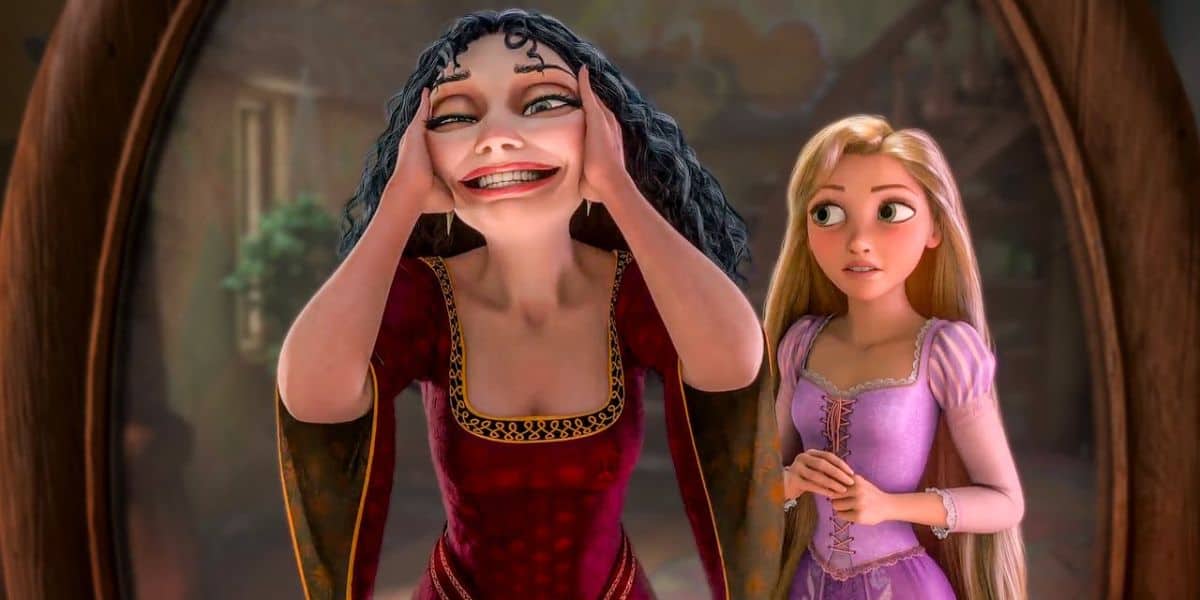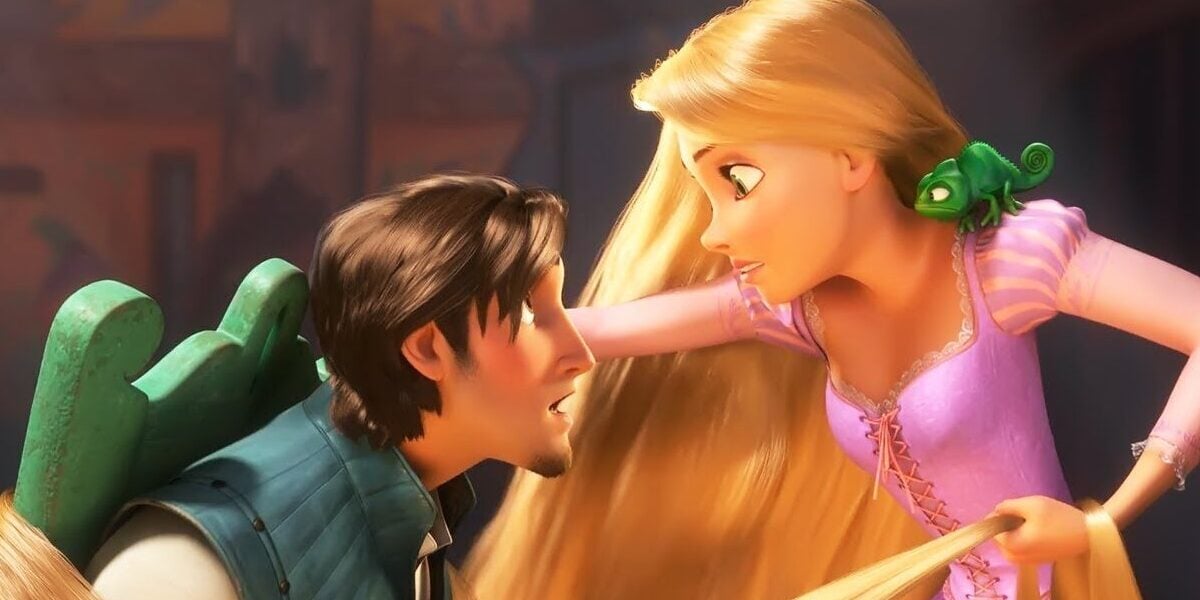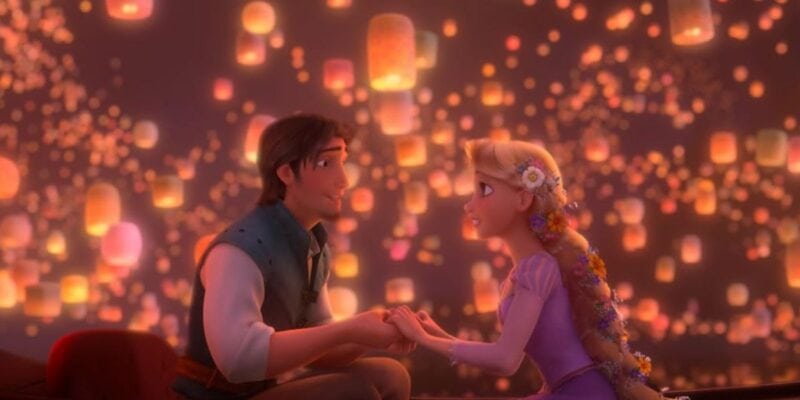Disney has always been known for going over the top in its films—lavish animation, unforgettable songs, and characters that stay with audiences long after the credits roll. But with that magic also comes the occasional eyebrow-raising line or scene that sparks debate years later. From villains who taunt their victims to comical insults tucked into family-friendly scripts, Disney rarely shies away from sharp dialogue.
Yet a new wave of discussion has emerged with the decision to censor one of the studio’s most beloved films, Tangled (2010). For many fans, this censorship feels completely uncalled for, while others argue it’s an example of the shifting cultural standards that continue to reshape how we view classic movies.

The World of Tangled
Released in 2010, Tangled quickly became one of Disney’s modern classics. A fresh take on the story of Rapunzel, it follows a long-haired princess locked away in a tower by the manipulative Mother Gothel. When Rapunzel finally gets a taste of the outside world with the help of Flynn Rider (played by Zachary Levi), her life changes forever.
The film stood out for its classic Disney princess storytelling blend with a more modern sense of humor. Mandy Moore brought warmth and charm to Rapunzel, while Donna Murphy voiced Mother Gothel, delivering one of Disney’s most memorable villains. Not only did Tangled delight audiences with its stunning visuals and heartfelt plot, but it also gave fans a soundtrack packed with catchy, emotionally charged songs.

“Mother Knows Best”
Among those songs, “Mother Knows Best” is easily one of the most iconic. Donna Murphy’s performance is entertaining and chilling, capturing Gothel’s manipulative grip over Rapunzel. The lyrics balance playful wit with biting cruelty, reinforcing Gothel’s role as a toxic maternal figure who controls her daughter with cutting remarks disguised as humor.
Lines like “Skip the drama, stay with mama” and “Go ahead and leave me, I deserve it—let me die alone here” highlight her guilt-tripping tactics. But the line “Plus, I believe you’re getting kind of chubby” has drawn new attention. Delivered with a smirk, it’s a subtle but stinging jab that fans have long recognized as part of Gothel’s manipulative arsenal.
For over a decade, the lyric passed as a believable villain insult. But thanks to TikTok, it’s become the center of a much larger conversation about censorship and parenting.

One Line Sparks a Controversy
The controversy began when a mom on TikTok revealed that she censors Tangled every time she shows it to her daughter. Specifically, she mutes the movie during the “Mother Knows Best” part where Gothel says the “chubby” line. In her view, those words are damaging and unnecessary for her child to hear, even when a villain is cruel.
Her video showed her muting the remote during the song, and the clip quickly went viral. Some were stunned that she would interrupt such an iconic Disney moment, while others praised her choice as a thoughtful way to protect her child from negative body image messaging.

TikTok Explodes With Backlash
Like most viral parenting choices, TikTok lit up with support and criticism.
One commenter didn’t mince words: “She censored ‘chubby’? We are doomed as a society.” For this group, muting a single word crosses the line into overprotection, stripping Gothel of her villainous edge and denying kids the chance to experience the story as it was written.
Another user pointed out that instead of censoring the lyric, parents could use it as an opportunity to talk with their children. They explained that the line could be turned into a teaching moment—an example of Gothel being wrong and mean, reinforcing the idea that negative comments about body image shouldn’t be taken to heart.
Somebody else added that muting the word might actually backfire, drawing more attention to it. They argued that once the discussion inevitably happens, the daughter might have the line “ingrained” in her brain even more than if she had simply experienced it naturally within the context of the movie.
Still, others defended the mom, saying she was right to prioritize body positivity. For them, cutting out harmful language entirely was a way to protect their child from hearing damaging words during her formative years.

The Bigger Picture
This isn’t the first time a Disney film has faced the question of censorship, even if in this case the studio itself wasn’t involved. Disney has a history of editing, apologizing, and even placing content warnings at the beginning of its older movies to acknowledge outdated or offensive material.
Some scenes have been removed entirely from Disney+ releases, and the company has shown that it won’t ignore sensitive issues in its vast library.
The difference here is that the censorship came from a parent rather than the studio, highlighting the personal responsibility families take regarding media. Each household has its own rules and values, and what one parent sees as “over the top,” another might view as a thoughtful precaution.

Tangled in Controversy
The debate over Tangled’s censored lyric reflects a larger conversation about how families handle the media their children consume. Disney has acknowledged the power of words and imagery in its catalog, often altering or warning about past works. But when it comes to day-to-day choices, it really does come down to individual parenting styles.
For some, muting a line like “chubby” feels unnecessary and overprotective. For others, it’s a simple way to protect kids from harmful ideas until they’re old enough to understand. What’s clear is that the conversation won’t end anytime soon—and Tangled, more than a decade later, has become part of that ongoing story about how families navigate the balance between classic entertainment and modern values.
